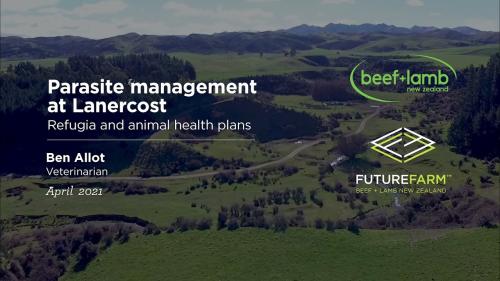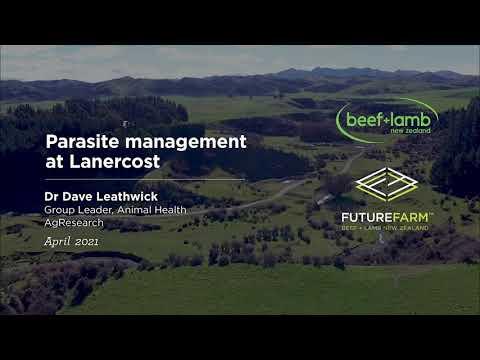Search results
Displaying 41 - 50 results of 122
- NewsIn a normal year, lambs do not require a drench at docking/tailing and a routine drench at this time may not be generating as much value as farmers might …

- PageMeet your enemies! Learn about the important worm species of cattle – effects on the animal, seasonal pattern, diagnosis, treatment and prevention …
- Podcast… about drench resistance, head to www.wormwise.co.nz …
- Podcast… and Veterinarian Ginny Dodunski of B+LNZ Wormwise. …

- Factsheetimpact worms internal parasites animal production begins soon animals exposed worm larvae pasture effects may viewed continuum from exposure worms therefore impact presence heavy burdens animals …
- VideoHe outlines how to manage clean pastures in respect to refugia, the next steps for Lanercost's drenching regime and the value of animal health plans. Watch Part 1 of this three-part series. Watch …
- Factsheetworms internal parasites most importance new zealand livestock live animals gut stomach intestine sheep cattle deer infected variety different worm types once have minimal parasites common whole life …
- VideoAn emerging drench resistance issue has been identified on Beef + Lamb New Zealand’s Future Farm Lanercost and a holistic plan is being put in place to protect future livestock productivity. In this …

